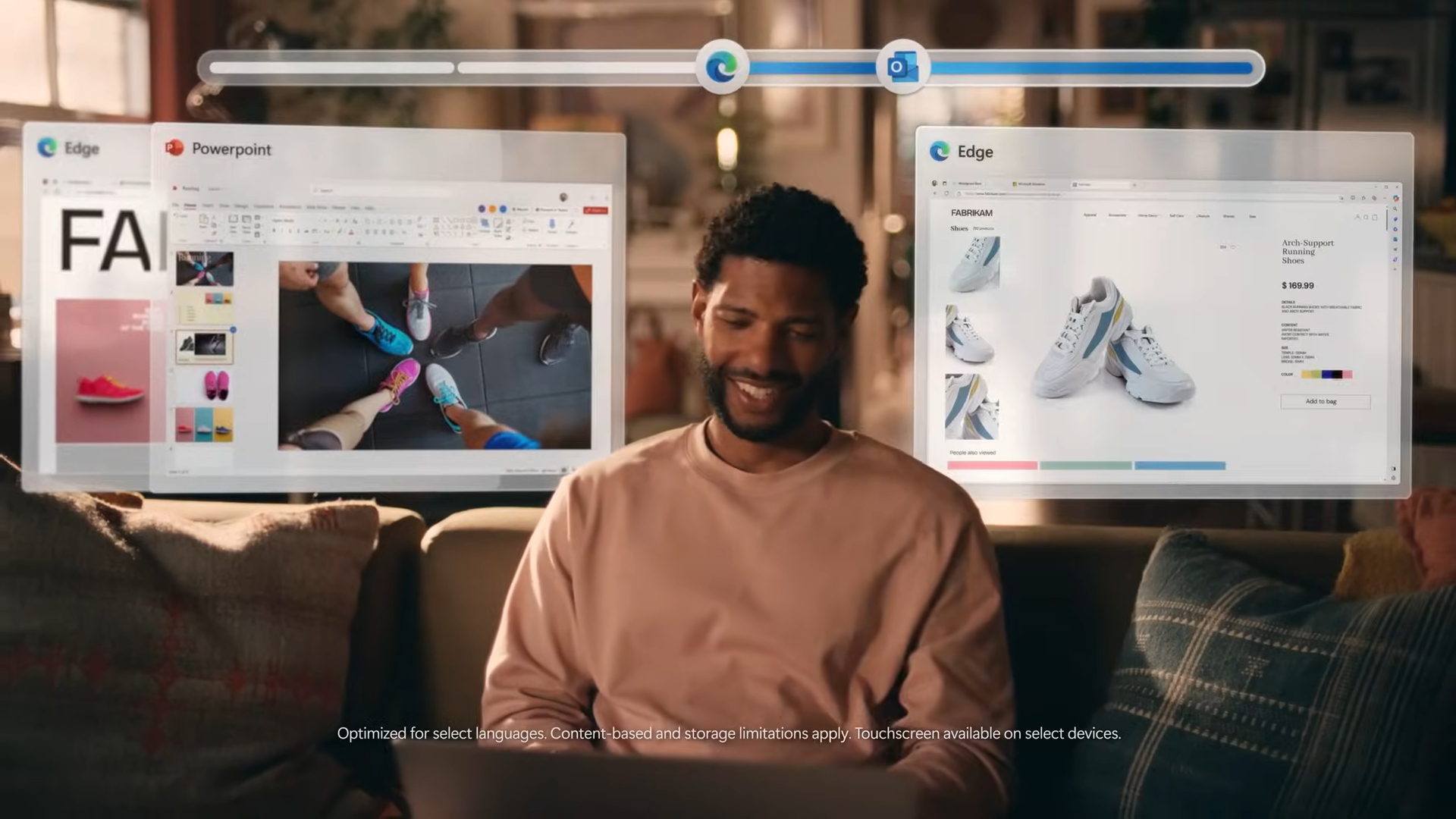Exclusive: Intel plans a big push into handheld gaming PCs to take on AMD
Robert Hallock, VP and General Manager of Client AI and Technical Marketing at Intel says the company has big plans to expand its presence in the handheld gaming PC market
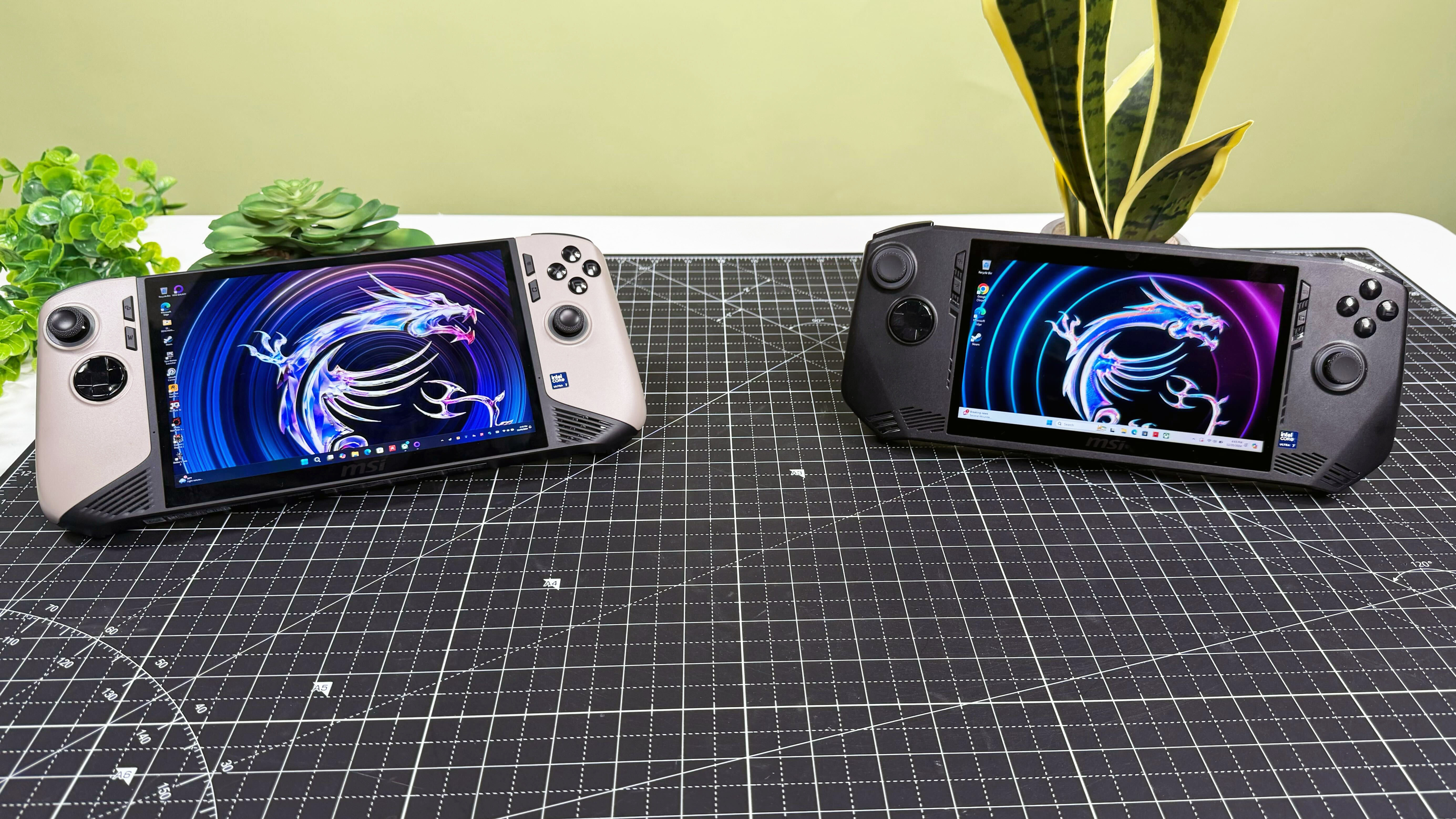
Handheld gaming PCs aren't exactly a niche anymore.
Every major gaming hardware manufacturer, other than Alienware, has joined the handheld PC market with at least one attempt at a gaming handheld.
And within the world of gaming handhelds, AMD has reigned supreme, supplying chips for the Asus ROG Ally X, Lenovo Legion Go, and more. Intel handhelds, on the other hand, have been something of a niche within a niche. We had the MSI Claw release in 2024, and a few other Meteor Lake handhelds were announced by companies like OneXPlayer and AOKZOE. MSI also updated the Claw with Intel's Lunar Lake chipset for the Claw 8 AI+ and Claw 7 AI+, though neither handheld is readily available on the shelves.
But just because Intel is taking a backseat for now doesn't mean it's content to sit in second place. Intel VP and General Manager, of Client AI and Technical Marketing, Robert Hallock tells Laptop Mag, "Intel is beefing up its staff to support gaming ISVs who want to do handhelds."
And with expert support staff from engineers to game developers, Intel is readying itself to make a big push into the handheld market.
Intel's committment to handheld gaming PC development
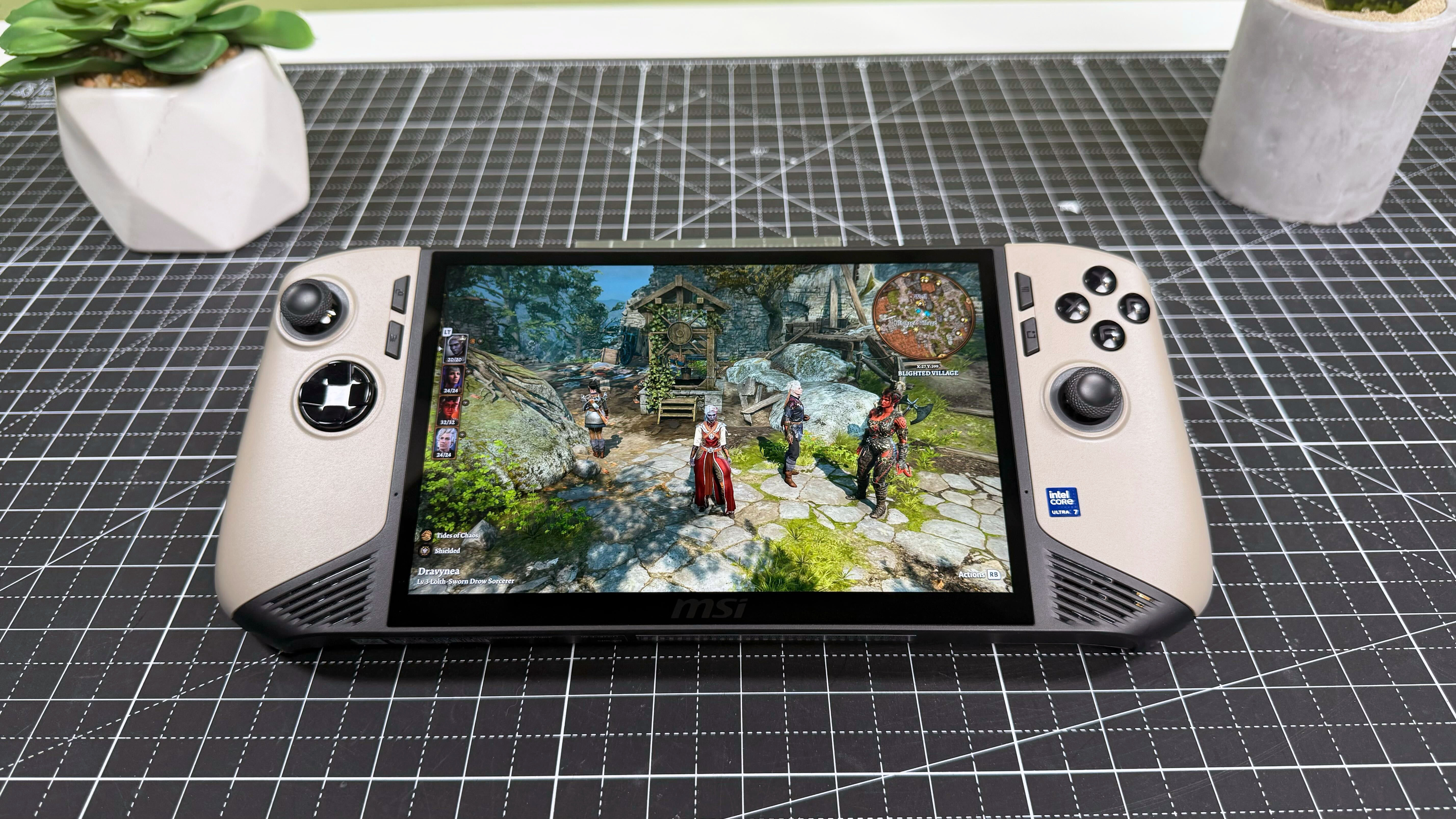
As part of Intel's commitment to the handheld gaming PC market, the company is increasing its support network for handheld manufacturers. Hallock explains, "We're starting a number of internal programs to give them more assistance in targeting this performance profile because – relative to what they're accustomed to – [handhelds] are still relatively rare in terms of availability."
Part of Intel's plan to support the emerging handheld market is seeding devices to game developers. "A lot of game devs tend to just target what they have on their desks or in their QA labs," Hallock says, "and so [we're] arming them with more handhelds as prototype devices. Getting them dev kits leading into Panther Lake."
Stay in the know with Laptop Mag
Get our in-depth reviews, helpful tips, great deals, and the biggest news stories delivered to your inbox.
But Intel plans to offer more than just dev kits for handhelds. Intel is also keeping handheld specialists on staff as additional support for engineers and software developers.
Arrow Lake Handhelds are coming
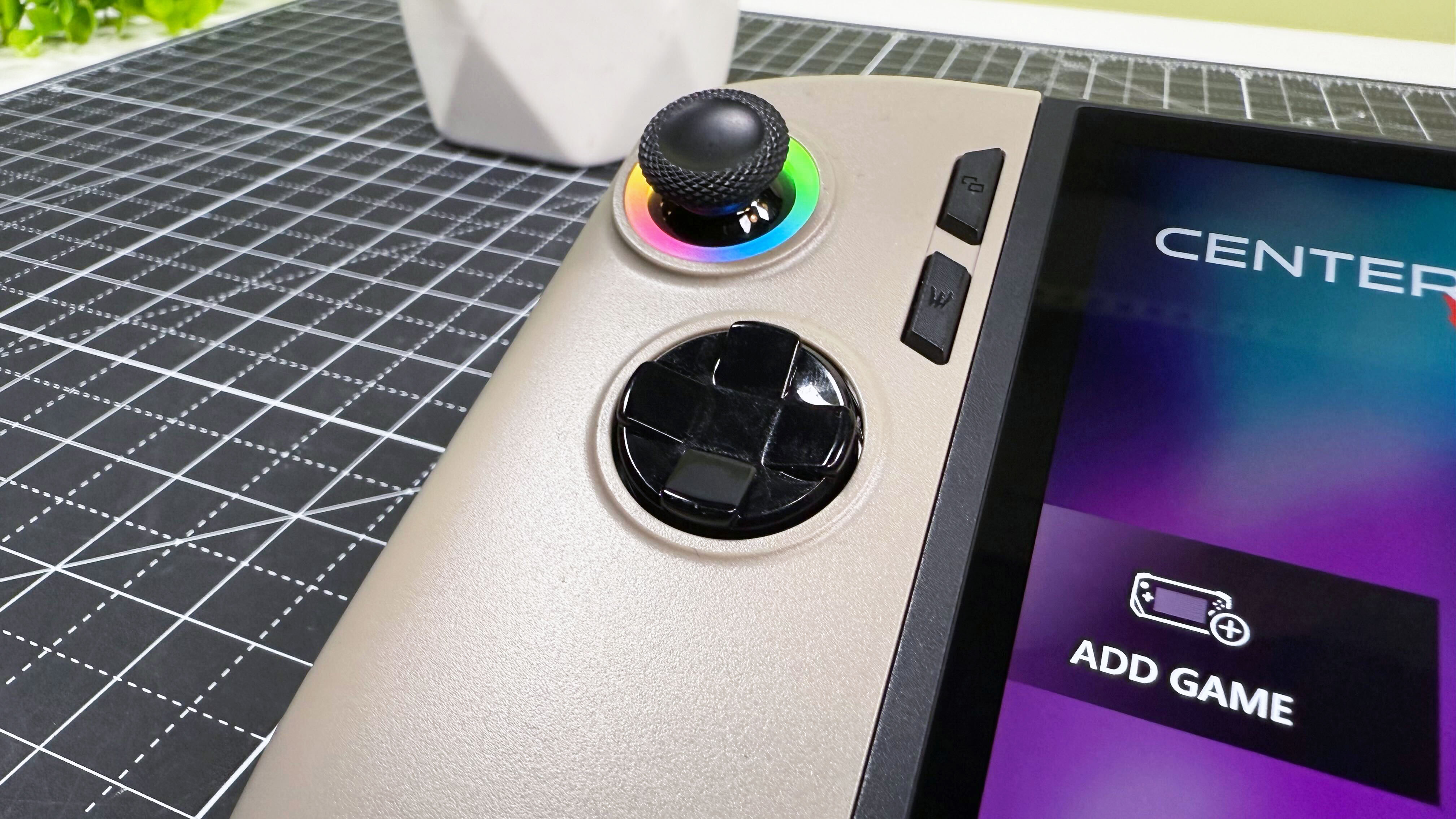
At CES, Intel had a wall of upcoming products featuring Intel chipsets. Familiar Intel-powered devices lined the shelves, including the MSI Claw 8 AI+ and Tencent Sunday Dragon 3D handhelds as well as several upcoming Arrow Lake laptops by Acer, Asus, Dell, and Lenovo.
But there were a few other gaming handhelds next to the Claw and Sunday Dragon 3D handheld. I wasn't able to identify those devices at the time, and probably for good reason, as Hallock confirmed those handhelds were powered by Intel's latest Arrow Lake H SoC (System-on-a-chip).
"Those are coming, you know, Arrow [Lake] H has about the same graphics performance as Lunar [Lake] and some of these handhelds are going all the way up to 30 watts now. And Arrow [Lake] fits really nicely in that sort of form factor," Hallock confirms.
Based on what we've seen of Arrow Lake H's integrated Arc 140T graphics tile, we'd be pretty pleased with the performance on an Arrow Lake H gaming handheld, though the battery life might not be as good as the Lunar Lake handhelds.
"It's not just Lunar [Lake] either. Whatever our vendors want to take for their product design, we're more than happy to do so. And the cool thing about having more than one SoC design is you can actually be flexible like that," Hallock says.
"We don't have to take the same design and just keep cutting it bigger and smaller."
But you may want to hold out for Panther Lake
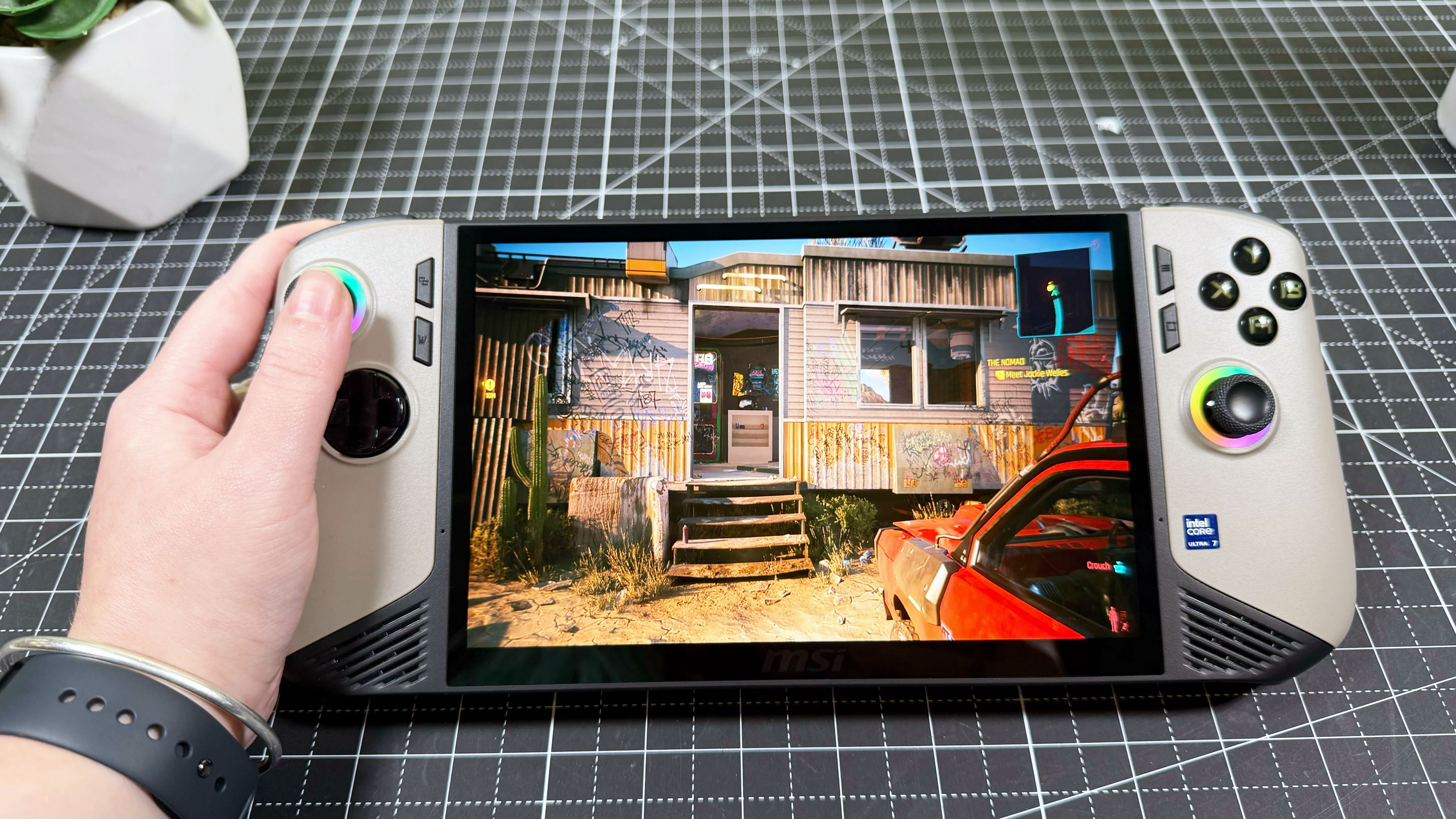
Arrow Lake H isn't the endpoint for Intel's handheld commitment either. Co-CEO Michelle Johnston Holthaus confirmed at CES that Intel's next-generation of mobile chips, Panther Lake is already in testing. And Hallock confirmed that Intel is already willing to work with partners to get Panther Lake handhelds on the schedule.
But what do we know about Panther Lake so far? This upcoming chipset design won't be joining the Intel Core Ultra 200 family alongside Lunar Lake and Arrow Lake.
Panther Lake is the codename for Intel's upcoming mobile CPU family of SoCs, similar to Arrow Lake, and will likely be part of Intel's Core Ultra 300 generation. And while former Intel CEO Pat Gelsinger confirmed that Lunar Lake was something of a one-off in terms of chip design, particularly in putting the system memory on the CPU package, Panther Lake is intended to build on the success of Lunar Lake.
"Panther Lake is essentially a direct successor to what Lunar [Lake]'s doing," Hallock tells us. "You saw the [CPU] package get held up at CES, it doesn't have memory on package this time." And while that is a major change from the Lunar Lake design it does have its advantages.
"That makes it really nice for handheld vendors as well because now they can customize the memory they put in the platform. But we have other technologies that can compensate for the removal of the memory on package, which saves power," Hallock adds.
So even without the benefit of having memory on the CPU package, Panther Lake shouldn't be much slower than Lunar Lake, while offering a more standard silicon design that allows for RAM configuration customization.
"We're trying to build a family tree out of Lunar Lake," Hallock explains. "We're trying to create a stack based on that product. We're trying to take the things that people love and do more of it."
So while Arrow Lake-H handhelds are coming soon, and a few Lunar Lake handhelds have already been announced, if you have the patience to wait for the Panther Lake versions it might get you the best of both worlds.
Bottom line
Intel's internal support for handheld development is less about gamers, it's more of a commitment to hardware design and game developer partners.
"If there's a game developer out there who happens upon this article eventually and you've been thinking about handhelds, give us an e-mail," Hallock says. "We would love to work with you and help you optimize your software for handheld devices. We have that staff. We have performance profiling tools. We have game developers on staff who are very familiar with optimizing graphics presets for devices of this performance profile or this form factor, and we would love to step in and give you a hand."
"It's a big goal for some of the groups inside Intel to work on this, to make it their number one priority in '24 and '25 and then headed into Panther Lake as well.
We know that designing a new game for a new piece of hardware isn't always easy.
And so we're ready and willing to jump in and help you do it. So if your game isn't coming out in the Lunar Lake generation, cool, we can help you do it for the Panther Lake generation, that's fine."
But for all that Hallock's message isn't for gamers, ultimately consumers will have a much better experience on Intel handhelds thanks to partnerships and co-engineering teams like this one. Intel is known for working closely with its OEM partners and expanding into the game development side makes sense. Both for handheld devices that use Intel's SoC chipsets, but also for Intel's Arc discrete graphics business.
Ultimately, steeper competition in the handheld gaming space will only benefit gamers in the long run.
More from Laptop Mag

A former lab gremlin for Tom's Guide, Laptop Mag, Tom's Hardware, and TechRadar; Madeline has escaped the labs to join Laptop Mag as a Staff Writer. With over a decade of experience writing about tech and gaming, she may actually know a thing or two. Sometimes. When she isn't writing about the latest laptops and AI software, Madeline likes to throw herself into the ocean as a PADI scuba diving instructor and underwater photography enthusiast.
You must confirm your public display name before commenting
Please logout and then login again, you will then be prompted to enter your display name.
